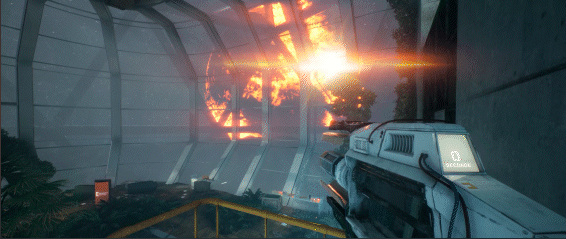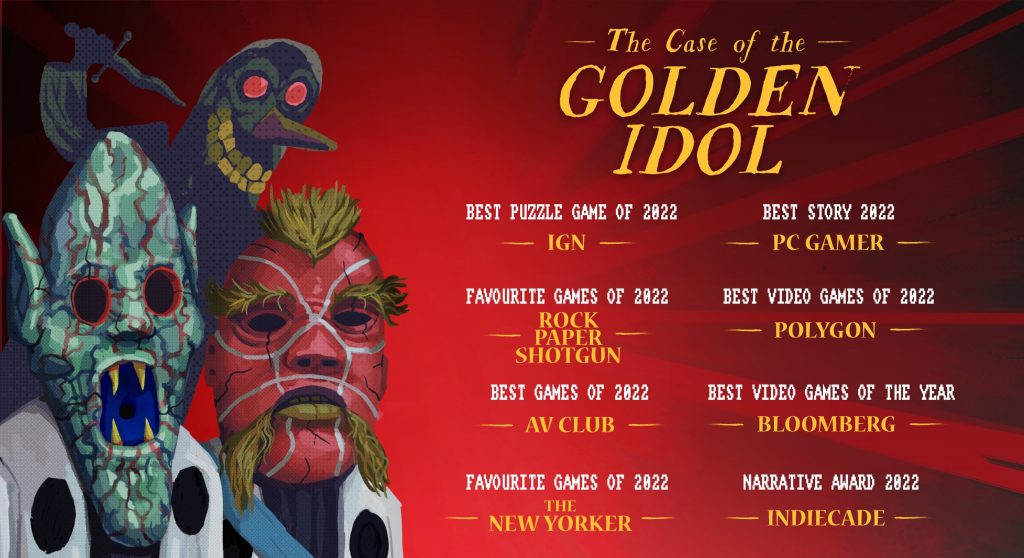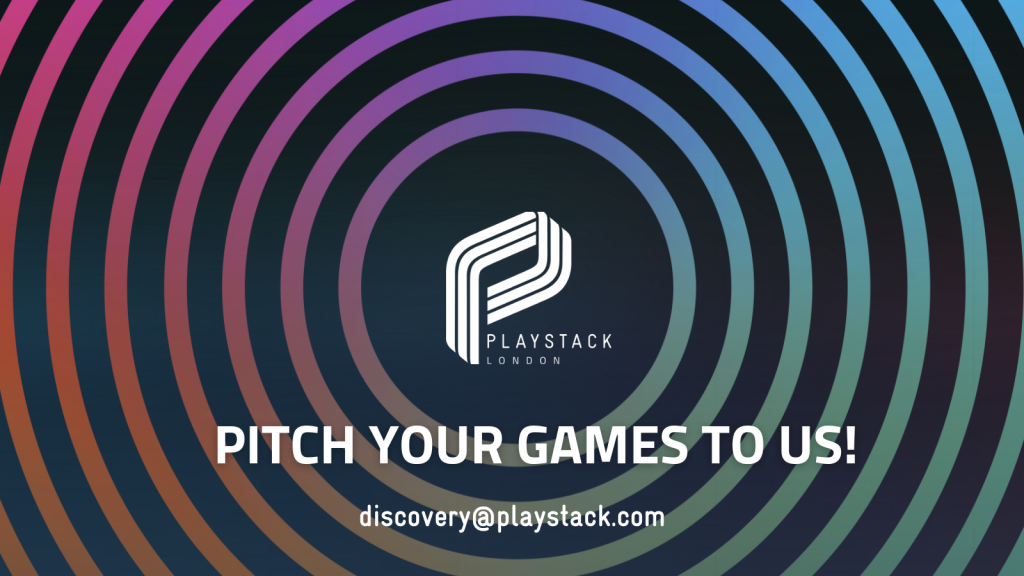
Naman Budhwar, Senior Discovery & Marketing Manager
As a games publisher, we get pitched a lot of games – but we also pride ourselves on our ability to dig out the diamonds ourselves. Our game scouts are an integral part of finding games and developers we want to invest in. We sat down with Naman, Senior Discovery & Marketing Manager, to learn more about what he does – and how he and the team brought the developers of The Case of the Golden Idol and The Entropy Centre onboard.
Question: How exactly did you find out about The Golden Idol and The Entropy Centre?
I believe it was Juha from our Finnish team who first found The Case of the Golden Idol – he had gone to an event and met the developers and got chatting with them about their game. I remember Juha sending it over to me and our VP of Publishing, Rob, and thinking that it was very unique, but perhaps lacked a traditional appeal in its visual style. However, we take the general philosophy of trying to look at everything that gets pitched to us, and as soon as we started playing it and understanding the mechanics we knew we had something special, and realised that its idiosyncratic art style should not be a barrier to people really enjoying it.
It was a slightly different situation for The Entropy Centre. We tend to look through lots of games every morning; checking what’s new on Steam and Twitter – looking for that needle in the haystack or diamond in the rough. There are so many games these days that it’s relatively rare to find something and think it could be very special! When I saw the trailer for The Entropy Centre on Steam, I was interested, but a little dubious due to how pre-rendered it looked. I reached out to Daniel and spoke to him about his process, and he seemed both friendly and authentic. He sent the first build through when it was in a playable state and I tried it out, and that’s when it started to click with me – this filled a huge gap in the market. There was nothing to be dubious about either, the visuals were truly outstanding. I told the rest of the team that this might be one for us, this was pretty early on in the game’s development cycle. I think the fact that Playstack was one of the first publishers to reach out and speak to him spoke volumes about the commitment we were prepared to offer.
Question: For The Entropy Centre, was it the visuals that drew you in?
No. It’s interesting because games at an early stage don’t tend to be all the way there graphically. What stood out to me was the fact that this was taking a genre where there’s an appetite, but there aren’t necessarily many fantastic games in the space. Portal is the standout leader, and there are games like The Witness or Talos Principle that are also quite popular, but this was something that felt brand new. As soon as I did the first few puzzles with the time rewind mechanic, I thought it was so challenging and clever. I knew people would be surprised by it, so both its commercial potential and the clever mechanical workings of the game made me think others would be drawn to it.

A derelict and mysterious space station lures players in, in The Entropy Centre
Question: And what about The Case of the Golden Idol?
Its narrative structure is wildly different and unusual from what you usually find. Games are special in that their method of storytelling can be unique. Some AAA games imitate film as a medium, but for me, the most interesting storytelling happens in indie games. Indie games can’t do what the big-budget games can do, but instead they use the actual form of games to tell a story in a way no other medium can. The Case of the Golden Idol does just this, it puts you in the shoes of a detective. It trusts the player to understand things through context clues to find their way through the mystery and reach moments of revelation by themselves. We playtested the game through the development process and I was always excited to play it! I remembered the characters from previous rounds of playtesting and couldn’t wait to explore more – each case was like a vignette, a snapshot: over time you can clearly see links forming between them and that’s what drew us in.

The Case of the Golden Idol landed on many Game of the Year lists in 2022
Question: Would you consider yourself hands-on with the development process?
I would say we’re not hands-on with creative stuff, generally. We like to let developers make their own creative decisions; we believe in their vision and we’re here for feedback and for bouncing ideas off – which is what we did for The Case of the Golden Idol. We gave feedback on levels when we playtested alongside external playtesters the developers knew. We weren’t telling them ‘this is what you need to do’, it was more production-side touchpoints with them – feedback-based – but we trusted them a lot with the design aspect of things.
Question: What was your relationship with the developers like during the process?
They were all easy to work with! Ernest [The Case of the Golden Idol] is exceptionally talented as an artist, and they both always shocked and surprised me, especially with how on top of everything they were and how willing they were to take on feedback from Playstack’s side. Every time I playtested a new scenario, I streamed that testing to them live. It became an incredible collaborative process of the whole team playing the levels to help locate those friction points so that when the game came out it hit the perfect level of ‘difficult, but not frustrating’. It was a similar experience with Daniel [The Entropy Centre] – lots of external playtesting because developers can’t really test their own puzzle games: they know the answers already, so it can be hard to gauge the level of difficulty.
On the marketing side, Daniel used to work for a trailer company in Brighton, which is partially why he got into the game development field, so he has lots of talent there, and a good eye for trailers in general. He was an integral part of the trailer production alongside our talented internal team. I think those are some of the best trailers we’ve ever done!
Question: Playstack’s catalogue is rather eclectic – is that on purpose?
For me, you can have a successful game in any genre – you just have to find the right game. From my perspective, we look at as wide a range of games as possible. It is also testament to the team behind it: the console team is very well-read, we play a wide variety of games and have a wide taste, and we understand the medium deeply. That leads to interest in lots of different types of games – there are some specific genres we are excited about at the moment, but we are always looking for diverse games in a range of styles.

As a publisher, we don’t necessarily have an ‘identity’ in that regard, which gives us the freedom to be eclectic and varied in our approach and take on games in many different genres. That’s what we want to be known for: just publishing fantastic games, no matter what.
The Entropy Centre is available to buy now on PS5, PS4, Xbox Series X|S, Xbox One and PC
The Case of the Golden Idol is available to buy on Steam now.


